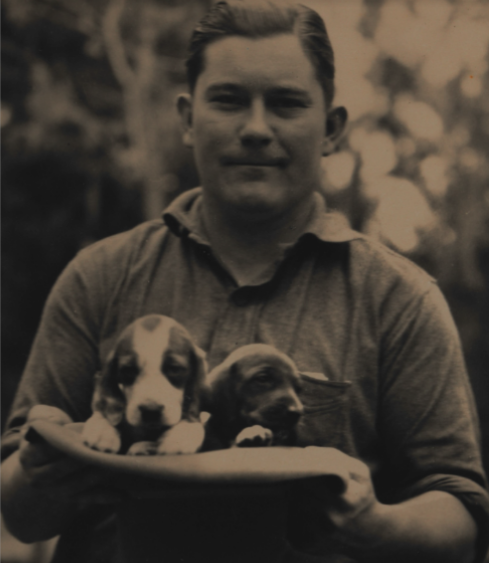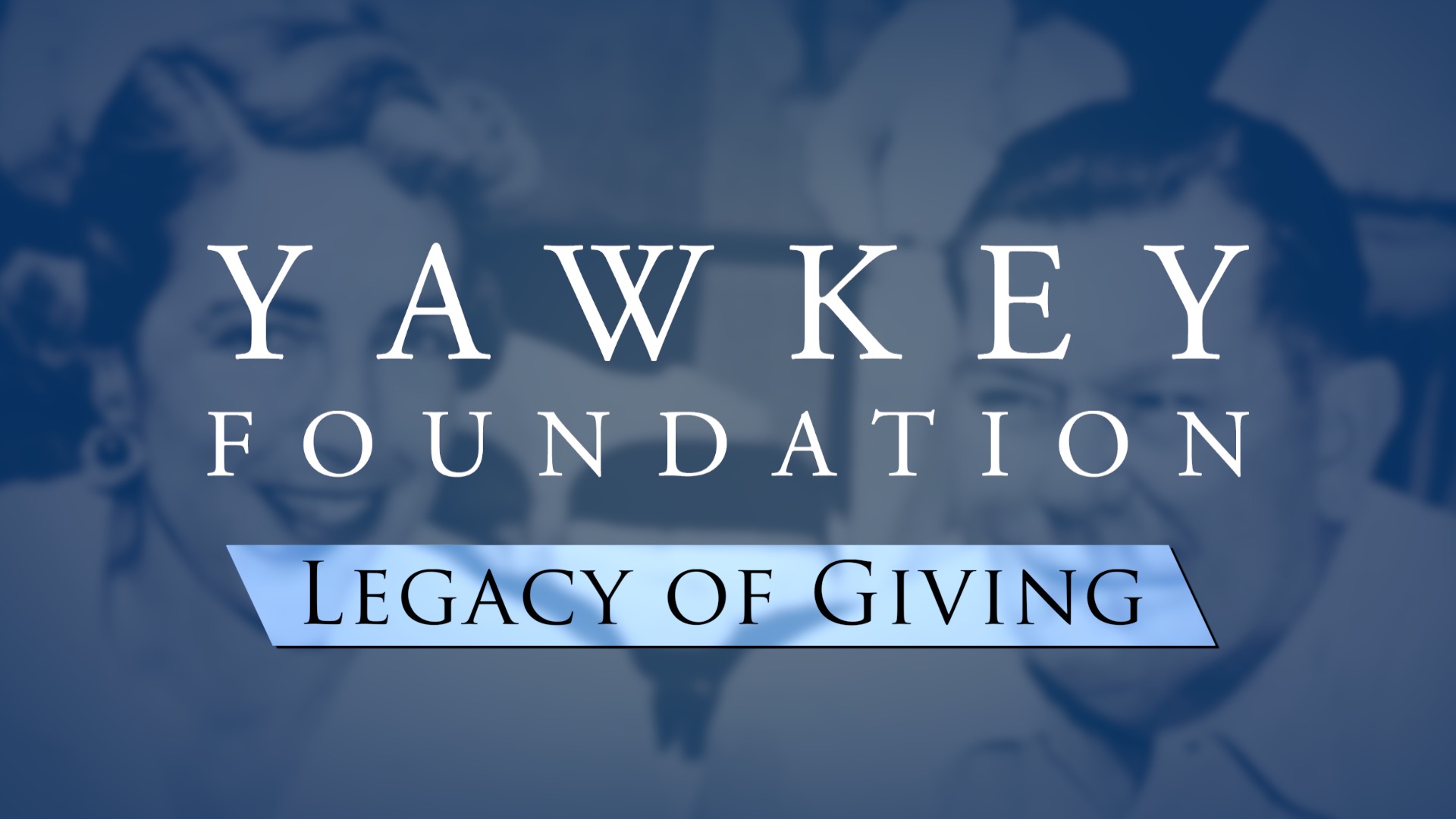By today’s standards, Tom Yawkey would be considered a philanthropist. However, during his lifetime Tom gave to others simply because it was the right thing to do. He never considered himself a humanitarian. He never asked for recognition and often made donations on the condition of anonymity. For decades, he gave freely of his resources to those in need.
While the Yawkey Foundation carries on the charitable legacy of both Tom Yawkey and his wife, Jean Yawkey, a look back at Tom’s personal giving during his lifetime provides a glimpse into the people and causes that were especially close to his heart. Today, these principles help guide the mission of the Yawkey Foundation. However, it must be noted that much of Tom’s generosity is impossible to quantify, as he frequently helped people in a discreet and private manner with personal expenses for educational and medical purposes and assisted local organizations with facilities improvements and operational funding.

Health Care
American Red Cross – Tom donated five ambulances in 1942 to be shipped to the Middle East for the war effort.
American Field Service – In 1942, Tom donated $10,000 to the volunteer ambulance corps transporting casualties during World War II.
Tidelands Health/Georgetown Memorial Hospital – Georgetown County held a special place in Tom Yawkey’s heart. Not only did he visit the area as a child with his Uncle Bill, but he later inherited land, expanded the land, married his wife Jean there, and spent every winter there as part of the community. As such, he and Jean contributed $100,000 in 1945, or what would be over $1.5 million today, to help build the area’s only hospital.
Dana-Farber Cancer Institute & the Jimmy Fund – In 1952, Tom began privately supporting the research of Dr. Sidney Farber, a founder of the practice of pediatric pathology who is also known as the father of modern chemotherapy. Tom and Jean designated the Jimmy Fund, Dr. Farber’s Children’s Cancer Research Foundation, as the official charity of the Boston Red Sox in 1953. Tom and Jean also were extensively involved in the governance of the Dana-Farber Cancer Institute. Tom served as a trustee from 1954 to 1976, during which time he was president of the institution from 1960 to 1969 and chairman of the Board of Trustees from 1969 until his death in 1976. Jean was a Dana-Farber trustee from 1976 until her death in 1992 and served as chair of the Board of Trustees from 1976 to 1979. In 2011, the Yawkey Foundation made its largest gift to date: a $30 million transformational capital grant to Dana-Farber Cancer Institute in honor of Tom and Jean Yawkey’s lifelong commitment to the Jimmy Fund. This grant, for the construction of the Yawkey Center for Cancer Care at Dana-Farber Cancer Institute, added 275,000 square feet of clinical and research space to Dana-Farber, including 104 exam rooms, 139 infusion chairs, and 17 consultation rooms, providing a nearly 30% increase to Dana-Farber’s clinical capacity.
Conservation & Wildlife
Tom Yawkey Wildlife Center – In 1914, Tom Yawkey’s uncle William Yawkey purchased a tract of land along the coast in Georgetown County, South Carolina. Tom visited this land frequently as a child, and in 1925, he inherited it from his uncle and set about expanding the land and caring for it by adhering to conservation practices. Tom’s will bequeathed the land to the South Carolina Department of Natural Resources after his passing and established the Yawkey Foundation to fund its maintenance in perpetuity. Now called the Tom Yawkey Wildlife Center, it spans over 24,000 acres and is considered one of the most generous gifts ever made to wildlife conservation in North America.
Youth & Amateur Athletics
Baseball Clinics – In 1951, Tom began the annual tradition of hosting youth athletes at Fenway Park for a baseball clinic, where they could learn baseball skills and enjoy a game. Throughout his decades of ownership, he also invited over 200,000 youth to watch free Red Sox games.
Mayor’s Charity Field Day – An annual event in the city of Boston, the Mayor’s Charity Field Day of 1958 took place at Fenway Park with more than 25,000 people in attendance. Tom Yawkey took care of all the associated expenses, as he did on the many occasions when he loaned out the park to community organizations for events. He also regularly provided access to the park for youth athletics and local sporting events.
Doubleday Field – Located just two blocks away from the National Baseball Hall of Fame in Cooperstown, NY, Tom supported Doubleday Field in 1959 by donating bleachers from Fenway Park to the field which added more than 3,000 seats for spectators. He would also send the Fenway Park grounds crew to tend to the field annually.
Education
Boston University – Dating as far back as the late 1930s, and throughout the early 1950s, Tom allowed Boston University to play football games at Fenway Park. He also donated stands to the school’s Nickerson Field which were used for games with smaller turnouts.
Agganis Foundation – Tom helped establish the Agganis Foundation in 1955. Harry Agganis was a Red Sox player who died from a pulmonary embolism when he was just 26. The Agganis Foundation honors his memory by providing scholarships and educational opportunities to student-athletes, including several specifically-designated Yawkey-Agganis Scholars from Boston Public Schools who are awarded scholarships every year.
Human Services
United Community Service of Metropolitan Boston – In 1953, Tom personally funded the United Community Service of Metropolitan Boston, the predecessor of today’s United Way. He continued to support the nonprofit throughout the next two decades.
Tara Hall Home for Boys – Tom and Jean began supporting the Tara Hall Home for Boys in 1972. A residential school that served youth with behavioral disabilities in Georgetown County, SC, the Tara Hall received 11 acres from the Yawkeys for its residential facilities. They also continued to provide annual support for many years.
Arts & Culture
Fenway Park – When Tom purchased the Red Sox in 1933, their famous baseball stadium, Fenway Park, was in disrepair. Tom restored the ballpark and made upgrades that became part of its signature features. After a fire broke out in 1934 during the renovations, Tom employed workers around the clock to continue the construction so the park would be ready for Opening Day. This investment, which came during the Great Depression when so many were out of work and experiencing financial hardship, was recognized and praised by local leaders and politicians.
National Baseball Hall of Fame & Museum – Tom first began supporting the National Baseball Hall of Fame and Museum in 1939. Along with donating a collection of baseballs from the early 1900s in 1967, including many autographed by Hall of Famers, he and Jean supported the organization for decades and both served on its Board of Directors.
JFK Memorial Library – Following the death of President John F. Kennedy in 1963, Tom donated the proceeds from the Red Sox opening day in 1964 to the John F. Kennedy Memorial Library Fund. Over $36,000 was donated from the sale of nearly 13,000 tickets, the equivalent of about $330,000 today.
Jean Yawkey Personal Giving
Jean Yawkey shared her husband’s passion for helping others. In her own right, Jean was well known as a private and generous person who gave freely of her time and money to those in need. As a young woman during World War II, Jean volunteered with the American Red Cross. Throughout her marriage to Tom, she was also involved with many of the same causes he cared about, such as the Jimmy Fund and Dana-Farber Cancer Institute, Tara Hall Home for Boys, Georgetown Memorial Hospital, and the National Baseball Hall of Fame and Museum.
After Tom’s death, Jean made sure that the Yawkey Foundation would continue to honor the places and causes she and Tom both cared about during their lifetimes. She often gave donations from her personal finances and developed relationships with nonprofit leaders and organizations that last to this day through the Foundation. Some of the causes and organizations she personally contributed to include The Family Inn (known as the Yawkey Family Inn at Boston Children’s Hospital), Boys & Girls Clubs of Boston, Jackie Robinson Foundation, Museum of Science, WGBH, Boston Symphony Orchestra, New England Aquarium, Greater Boston Food Bank, Rosie’s Place, and the Pine Street Inn. She also established Yawkey Scholarships with Boston College and the Jackie Robinson Foundation and expanded the Tom Yawkey Wildlife Center by thousands of acres.
